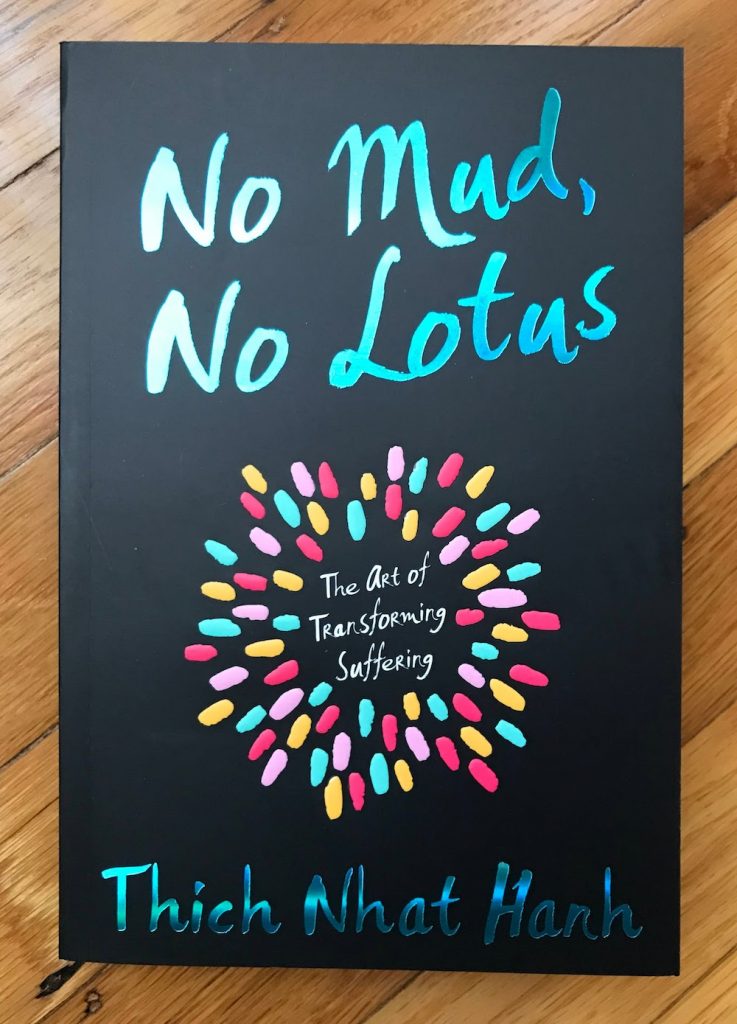
No Mud, No Lotus: The Art of Transforming Suffering
by Thich Nhat Hanh
published by Parallax Press, Berkeley, California
2014
I own and have read MANY books by Thich Nhat Hanh, the Vietnamese Buddhist monk and talented author of many books on Zen Buddhism. I’ve seen him speak in an auditorium here in the Bay Area. No matter how many times I hear or read him, I find great clarity and some useful insights into Buddhist philosophy. While I joined a temple of a different Buddhist sect for several years and enjoyed meditating and studying with them, I return to TNH’s work frequently.
TNH’s work helps me be more thoughtful about living in the present moment, a key concept of Buddhist study. He writes about it many different ways in different books, but the key concepts always remain the same.
This particular book emphasizes that suffering of various sorts is a part of life, and that we need to acknowledge that. This isn’t some book about faking optimism, or always looking on the bright side of life [insert Monty Python song here]: it’s about admitting that our suffering is real, but not letting it consume us. (It’s refreshing to read this, when we know people who force optimism on us for their own comfort…) Discussions of how we compound our suffering by dwelling on particular misfortunes and berating ourselves over them ring very true, and can help us manage misfortune more thoughtfully, without tearing ourselves apart.
Like many of TNH’s other books, this has the main thematic writing plus a supplement with a different structure. This time, it is a sort of workshop to help us resolve conflicts with loved ones through being present and thoughtful about emotional pain. The words seem simple, but the approach is highly thoughtful, and presenting these concepts in such a clear fashion makes them less intimidating. Just the first step – telling someone dear to you who is in conflict with you that you are really THERE for them, fully present, that they have your full attention – this rings really true to me, and I can name times when that first step alone could have de-escalated difficult personal situations.
This is another thoughtful, easy to read, problem-solving book written in a calming, reasonable tone. I’m glad I picked it up.
